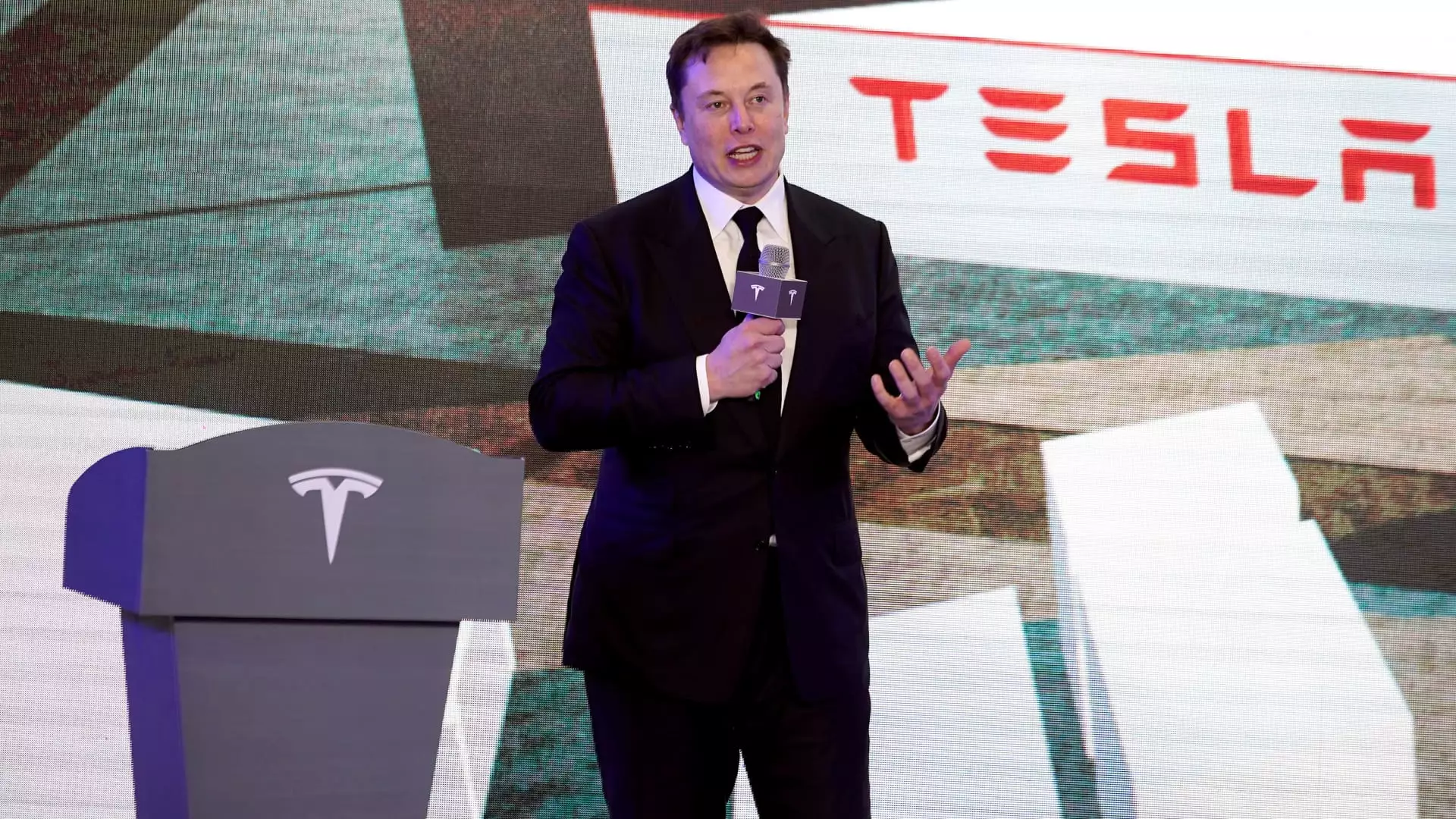In a surprising move that has sent ripples through the financial community, Tesla—led by the controversial yet influential Elon Musk—has implemented significant amendments to its corporate bylaws. The modifications aim to severely restrict shareholders’ abilities to launch lawsuits against the company’s executives and board members for any alleged breaches of fiduciary duty. Effective since May 15, this new bylaw states that any shareholder or group of shareholders must possess a minimum of 3% ownership of Tesla’s outstanding common stock to initiate or maintain a derivative proceeding. Given Tesla’s current market cap of over $1 trillion, this threshold equates to a staggering investment of over $30 billion. Such a paradigm shift not only raises eyebrows but invites scrutiny regarding the ethical and legal implications for shareholders.
Strategic Maneuvering in Texas Law
Tesla’s decision is undeniably strategic, especially considering the legal landscape that Texas provides. As noted by Ann Lipton, a respected attorney and academic specializing in corporate and securities law, this maneuver plays directly into Texas laws that allow firms to limit shareholder lawsuits against insiders. Given this regulatory backdrop, it is no surprise that Tesla, now incorporated in Texas, is leveraging these laws to erect formidable barriers for claimants. This effectively shields the company’s high-ranking executives from legal fallout, further solidifying their incumbency and utmost control.
The question remains: is this a valid protective measure for shareholders or an exploitation of power dynamics? Lipton’s assessment indicates that the high threshold for initiating lawsuits could dissuade even the most determined minority shareholders from seeking justice. While aiming to stabilize the company’s decision-making capabilities, it risks alienating smaller investors who may find their grievances dismissed due to the overwhelming shareholdings required to sue.
A Comparison with the Past: Lessons from Delaware
Understanding the rationale for this amendment requires reflection on Tesla’s tumultuous history while incorporated in Delaware. Notably, a previous case involving shareholder Richard Tornetta questioned CEO Musk’s exorbitant 2018 compensation package. A judge ruled in favor of Tornetta, citing Musk’s operational dominance and the board’s failure to negotiate effectively. This landmark case revealed deep-seated issues about transparency and accountability within the company. It served as a wake-up call for institutional integrity and shareholder advocacy.
The rapid transition from Delaware to Texas prompts speculation about the underlying motive. Musk’s proclamation to “never incorporate your company in the state of Delaware” illustrates a desire to escape regulatory scrutiny that could hinder his vision for Tesla. This brings to light a classic corporate tactic: redirection of focus, wherein the move to Texas appears more about protecting the executives than servicing the interests of the shareholders.
What This Means for Tesla’s Future
The ramifications of this bold bylaw change extend far beyond legal limitations. They represent a cultural hallmark indicative of a company willing to prioritize the insulation of its inner circle over open accountability. This trend fosters an environment where decision-making might skew toward short-term gains at the expense of long-term shareholder trust. If major investors believe their voices are increasingly marginalized, they may reconsider their position in a company that once stood as a beacon for innovation and disruption.
Tesla’s market dynamics could also experience shifts as the company becomes perceived less as a shared venture and more as a personal fiefdom of its founder. This perception holds the potential to impact stock prices, investor sentiment, and relationships with larger institutional investors who may seek more robust governance and accountability structures.
As Musk continues to chart his vision for Tesla amidst fierce competition, the insulated corporate structure he has crafted may serve as both a sword and a shield. The landscape demands vigilance from the investment community, as Tesla’s recent legal maneuvers suggest a robust commitment to executive power that could redefine the contours of corporate governance in the electric vehicle industry and beyond. Such changes are indeed a double-edged sword, with both formidable advantages and potentially irreparable risks looming on the horizon.

